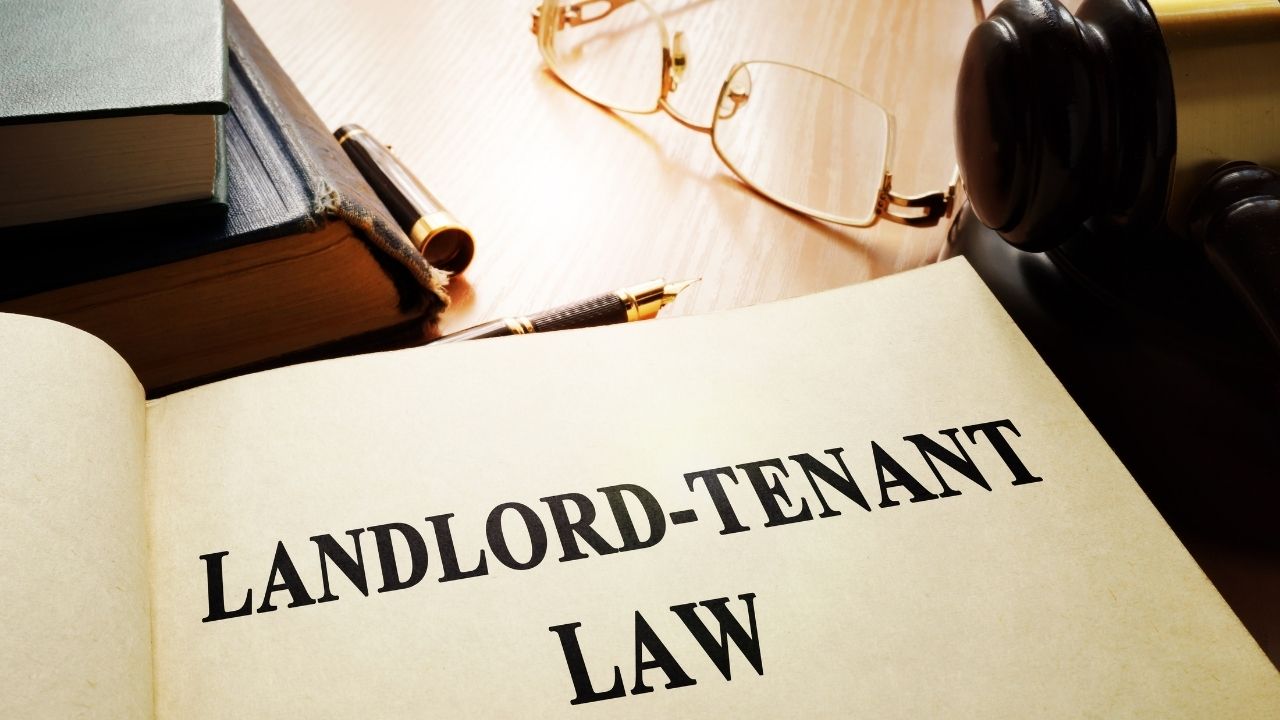US
Evictions in Houston During a Major Storm Have Tenants and Landlords Strained

Many of Houston’s roads have turned into rivers from tropical storm Beta. Houston, a city already prone to flooding in certain areas, isn’t able to handle the constant rain from this unmoving storm. The city has been blasted with rain nonstop for days and more than 100 rescues have already taken place.
Despite the presence of a major storm and massive flooding, many Houston evictions are moving forward. In fact, according to Houston Public Media, Houston has had the most evictions in the entire U.S. since the coronavirus pandemic began. More than 11,000 evictions have been filed in Houston since mid-March.
Landlords have their hands tied
While some would say it’s inhumane to evict a tenant in the middle of a pandemic, let alone in the middle of a flood, landlords have their hands tied. Although some landlords can get their mortgage payments suspended through the CARES Act, not all landlords qualify.
For many landlords, eviction is their only hope of generating income from their investment. Many Houston landlords depend on their rental income to pay their bills and feed their families. Their hands are tied – they have no choice but to pursue evictions that aren’t covered under the moratorium.
Flooding from Beta is making it hard to buy and sell homes
Many landlords who can’t evict non-paying tenants are working hard to generate income by acquiring new rental properties to rent to tenants who can pay the rent. However, flooding from the relentless tropical storm is making the home buying process hard. Despite massive flooding, Houston residents still need to complete the required technicalities like scheduling appointments for home inspections.
For property investors looking to acquire a new property, the impact of tropical storm Beta is slowing down the process. Many investors will need to wait until the storm passes to secure a new property to rent out.
Moratorium qualifications are confusing to landlords, tenants, and the court
There are currently no state or local eviction protections for Houston residents. However, the recent CDC eviction moratorium protects renters earning less than $99,000 per year or if they were eligible to receive an economic impact payment. However, Houston Public Media reviewed around 100 eviction cases and found only one was stopped by the moratorium. That doesn’t create a good outlook for Houston residents currently facing an eviction.
Part of the problem is that tenants don’t know their rights. The court isn’t required to tell renters they can apply for an exemption under the CDC’s moratorium. However, the Texas Supreme Court recently ruled that landlords are required to provide the exemption form to tenants with their eviction notice.
Another complication is confusion in the court. Many tenants provided their landlord with the proper declaration that they are covered by the moratorium, but the court rejected their declaration because it wasn’t notarized. The problem is, the CDC did not say the declaration needs to be notarized to be valid.
Some renters have reported being rejected by the court for invalid reasons and no reason at all. Houston Public Media observed several eviction hearings where tenants should have been granted coverage, but were unlawfully denied without a proper explanation.
Tenants don’t know their rights
Many evicted tenants would probably qualify for an exemption under the CDC’s moratorium and could make their case in court, but statistics show that most tenants don’t show up to their eviction hearings. The majority of evicted tenants simply pack their bags and leave as soon as they can to avoid getting involved in the court system. Many wouldn’t even know how or where to file the exemption.
Some evicted tenants have nowhere to go
Being evicted during a pandemic is some tenants’ worst nightmare. Many have nowhere to go. Thanks to flooding, many can’t even live in their cars without leaving the city of Houston. The situation is dire for those tenants.
Houston may see an exodus, at least until the storm clears
Many evicted tenants may leave Houston as tropical storm Beta floods the streets. Those who leave will probably come back once the storm has passed and the streets have dried up. Houston is one of the most popular U.S. cities and it’s hard to imagine residents leaving for good.
Hopefully, the storm and the pandemic will both pass quickly so that Houston residents can get back on their feet. Until then, we can expect to see evictions through the end of 2020, and possibly even more when the moratorium ends.
US
Creating Safe Havens: Inside Genesis USA’s Vision for Inclusive Housing

GenesisUSA, a nonprofit based in Arlington, Texas, works to improve the lives of disabled veterans and children who have lost their parents. Led by Charles Ford, the organization goes beyond providing financial aid. It focuses on long-term solutions, like building wheelchair-accessible homes, to support independence and dignity for those in need. With rising housing costs and growing inequality, GenesisUSA’s mission addresses a critical gap.
Ford and his team create supportive environments that help promote self-reliance in underserved communities. As a smaller, community-based organization, it addresses challenges that can be difficult for larger organizations to manage. Its work shows how local initiatives can make a noticeable difference.
A Growing Crisis: The Need for Accessible Housing
The demand for affordable and accessible housing continues to grow. A 2023 report from the National Low Income Housing Coalition estimated that more than 11 million U.S. households need homes with accessibility features. This challenge is more pronounced for disabled veterans, with nearly four million living in homes that do not meet their physical needs.
“Our veterans have sacrificed a lot for this country, but many still face housing that doesn’t suit their needs,” Ford says. “Beyond merely providing them shelter, we’re creating a space where they can live comfortably.”
GenesisUSA is responding by building homes designed for accessibility. These houses include ramps, wider doorways, and modified kitchens and bathrooms to allow veterans to live more independently. The organization also plans to create supportive environments for children who have lost their parents, many of whom also face mobility challenges.
Ford’s Community-Driven Leadership at GenesisUSA
Ford’s years of experience in construction and his dedication to charitable work have shaped his leadership at GenesisUSA. He stays closely involved, often meeting veterans and families to learn about their needs firsthand. “For me, it’s about building personal connections,” Ford says. “Large charities sometimes miss the individual stories.”
The community focus defines Ford’s leadership. Although some wonder if a smaller nonprofit can make a meaningful impact, Ford is confident. “We don’t have celebrity endorsements or huge budgets, but we have real relationships with the people we help,” he says. His dedication to grassroots efforts sets GenesisUSA apart from larger, more structured organizations.
GenesisUSA has already helped over 100 people and aims to expand its impact with affordable, accessible housing solutions. One notable feature is the inclusion of a wheelchair-accessible swimming pool, which has received positive feedback. Ford says, “We’re creating spaces where people can enjoy life fully, just like everyone else,” which reflects the organization’s mission to support independence and inclusion.
Building More Than Homes: A Reflection of Hope
Ford looks back on GenesisUSA’s progress with a clear sense of purpose. “We’re not simply building homes, we’re offering hope and building opportunities for independence,” he says. “We’re here to support veterans who face mobility challenges and children who have lost their parents, offering them a chance at a more self-reliant life.”
As the organization’s reach expands, so does its ability to impact lives across the country. Its work embodies Ford’s dedication to ensuring that no one is overlooked. Ford envisions scaling their efforts while maintaining the personalized approach that defines their model.
“We’re still in the early stages,” he notes. “As we grow, we’ll continue to prioritize individual needs. Our success hinges on the improved quality of life for each person we help.”
As the demand for accessible, supportive housing rises, organizations like GenesisUSA play an important role in filling gaps left by larger institutions and government programs. Through its focus on tailored support and community-driven solutions, GenesisUSA is building a model for how smaller nonprofits can significantly impact and address pressing social needs.
-

 Tech4 years ago
Tech4 years agoEffuel Reviews (2021) – Effuel ECO OBD2 Saves Fuel, and Reduce Gas Cost? Effuel Customer Reviews
-

 Tech6 years ago
Tech6 years agoBosch Power Tools India Launches ‘Cordless Matlab Bosch’ Campaign to Demonstrate the Power of Cordless
-

 Lifestyle6 years ago
Lifestyle6 years agoCatholic Cases App brings Church’s Moral Teachings to Androids and iPhones
-

 Lifestyle4 years ago
Lifestyle4 years agoEast Side Hype x Billionaire Boys Club. Hottest New Streetwear Releases in Utah.
-

 Tech6 years ago
Tech6 years agoCloud Buyers & Investors to Profit in the Future
-

 Lifestyle5 years ago
Lifestyle5 years agoThe Midas of Cosmetic Dermatology: Dr. Simon Ourian
-

 Health6 years ago
Health6 years agoCBDistillery Review: Is it a scam?
-

 Entertainment6 years ago
Entertainment6 years agoAvengers Endgame now Available on 123Movies for Download & Streaming for Free
